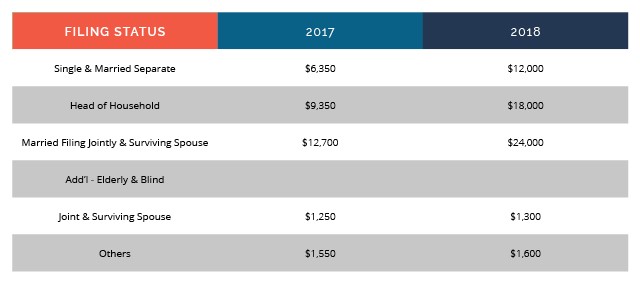Can You Still Write Off Gambling Losses In 2018

- Can You Still Write Off Gambling Losses In 2018 Taxes
- Can You Still Write Off Gambling Losses In 2018 For A
- Can You Still Write Off Gambling Losses In 2018 Tax
- Can You Write Off Gambling Losses In 2018
If you gamble, be sure you understand the tax consequences. Both wins and losses can affect your income tax bill. And changes under the Tax Cuts and Jobs Act (TCJA) could also have an impact.
While you can deduct gambling losses, these deductions cannot exceed the amount of your total winnings. For example, if you win $1,000 playing the lotto, but you’ve purchased $2,000 worth of losing tickets, you can write off the losing tickets only up to the amount of your $1,000 winnings, and not the entire $2,000 you lost playing. However, deductions for certain other miscellaneous expenses have been spared. For instance, you can continue to deduct gambling losses, up to the amount of winnings, on 2017 returns and beyond. The TCJA did, however, modify the gambling loss deduction, beginning in 2018. If you itemize instead of taking the Standard Deduction, you can deduct gambling losses up to the amount of your winnings. You won't be able to deduct gambling losses if you lost more money than you won (excess losses) or if you're taking the Standard Deduction. For example, if you have $5,000 in winnings but $7,000 in losses, your deduction is.
Wins and taxable income
You must report 100% of your gambling winnings as taxable income. The value of complimentary goodies (“comps”) provided by gambling establishments must also be included in taxable income as winnings.
Winnings are subject to your regular federal income tax rate. You might pay a lower rate on gambling winnings this year because of rate reductions under the TCJA.
Losses and tax deductions. You can write off gambling losses as a miscellaneous itemized deduction. While miscellaneous deductions subject to the 2% of adjusted gross income floor are not allowed for 2018 through 2025 under the TCJA, the deduction for gambling losses isn’t subject to that floor. So gambling losses are still deductible. If you have gambling losses, you write them off as 'other miscellaneous deductions' on line 28 of Schedule A, where they get combined with your other itemized deductions to reduce your taxable income.
Amounts you win may be reported to you on IRS Form W-2G (“Certain Gambling Winnings”). In some cases, federal income tax may be withheld, too. Anytime a Form W-2G is issued, the IRS gets a copy. So if you’ve received such a form, remember that the IRS will expect to see the winnings on your tax return.
Losses and tax deductions
You can write off gambling losses as a miscellaneous itemized deduction. While miscellaneous deductions subject to the 2% of adjusted gross income floor are not allowed for 2018 through 2025 under the TCJA, the deduction for gambling losses isn’t subject to that floor. So gambling losses are still deductible.
Can You Still Write Off Gambling Losses In 2018 Taxes
But the TCJA’s near doubling of the standard deduction for 2018 (to $24,000 for married couples filing jointly, $18,000 for heads of households and $12,000 for singles and separate filers) means that, even if you typically itemized deductions in the past, you may no longer benefit from itemizing. Itemizing saves tax only when total itemized deductions exceed the applicable standard deduction.
Also be aware that the deduction for gambling losses is limited to your winnings for the year, and any excess losses cannot be carried forward to future years. Also, out-of-pocket expenses for transportation, meals, lodging and so forth can’t be deducted unless you qualify as a gambling professional.
And, for 2018 through 2025, the TCJA modifies the limit on gambling losses for professional gamblers so that all deductions for expenses incurred in carrying out gambling activities, not just losses, are limited to the extent of gambling winnings.
Tracking your activities
To claim a deduction for gambling losses, you must adequately document them, including:
- The date and type of gambling activity.
- The name and address or location of the gambling establishment.
- The names of other persons (if any) present with you at the gambling establishment. (Obviously, this is not possible when the gambling occurs at a public venue such as a casino, race track, or bingo parlor.)
- The amount won or lost.

You can document income and losses from gambling on table games by recording the number of the table you played and keeping statements showing casino credit issued to you. For lotteries, you can use winning statements and unredeemed tickets as documentation.
Please contact us if you have questions or want more information about the tax treatment of gambling wins and losses.
© 2018
The passing of tax reform brought many eliminated tax deductions. To make the most of your 2018 tax year, it’s important to understand the changes. You may want to make financial adjustments now to ensure your tax outcome is favorable.
List of Eliminated Tax Deductions
Take a look at these eliminated tax deductions to understand if they affect your situation and how you can handle it.
Moving expenses
You can no longer deduct moving expenses when you relocate for a job or for self-employment.
Action plan: Because moving expenses are part of the eliminated tax deductions, it’s more important than ever to keep a lid on moving costs. For example, you may want to have shipping containers delivered to your door so you can load them yourself instead of hiring a full-service moving company to wrap every piece of glass. You’ll also want to consider the pros and cons of moving more carefully before you agree to move for a transfer or new job.
Home equity loan interest
Starting in 2018, you cannot deduct interest on a home equity loan, unless you used the loan to buy, build, or significantly improve your home and the loan is secured by your home.
Action plan: Consider paying down home equity lines of credit (unless you have higher interest rate consumer debt you should pay off first). If you take out new home equity debt, make sure it meets the requirements to be deductible, if possible.
Personal exemptions

For the 2018 tax year and beyond, you can no longer claim personal exemptions for yourself, your spouse, or your dependents. Previously, you could lower your taxable income by about $4,000 for each person in your household.
Action plan: Don’t panic! For most people, other changes in the tax code should make up for the lack of a personal exemption. The standard deduction almost doubled for most tax filers. Plus the value of expanded credits for children and dependents improved as well.
Deductions for state and local taxes
Before tax reform, you could deduct state and local property taxes, plus either state and local income taxes or sales tax. Now, your total deduction for state and local income tax is limited to $10,000 per income tax return ($5,000 if married filing separately).

Action plan: Now more than ever, you should consider taking steps to limit your state and local tax burden. You won’t want to pay property tax on real estate or personal property that you don’t need or use, for example. You may want to look into ways to reduce your real estate taxes, such as open space designations or challenging your assessment.
Miscellaneous Itemized Deductions
On Schedule A, you can no longer claim all miscellaneous itemized deductions previously subject to a 2 percent floor. That includes:
- Employee business expenses
- Tax preparation expenses
- Safe deposit box rental
- Investment fees
Action plan: There’s more incentive than ever to cut expenses when they are part of the list of eliminated tax deductions. For example, not everyone needs to rent a safe deposit box or pay a professional to prepare their taxes. (Hint: offers some DIY options.) If you have significant employment expenses, you can try to press your employer to reimburse those costs. Or, you can get creative and find out if you qualify as an independent contractor instead of as an employee. (Self-employed people can still deduct business expenses on Schedule C.)
Casualty and theft losses
You can no longer take a deduction for casualty or theft losses, except in places the president declares disaster areas.
Action plan: You can’t avoid all potential for casualty losses, but you can make sure your homeowners or renters insurance is up to date and covers natural disasters. That includes floods and fires.
Alimony payments (2019)
You can no longer deduct alimony payments as a result of a divorce settled after 2018. That means the tax reform changes do not apply to settlements finalized before Jan. 1, 2019. If you receive alimony payments from a settlement in place from 2019 and forward, you won’t pay tax on the alimony you receive.
Can You Still Write Off Gambling Losses In 2018 For A

Can You Still Write Off Gambling Losses In 2018 Tax
Action plan: If you are in the midst of divorce proceedings, make sure the division of property and alimony payments reflects the new tax realities. Generally, the alimony payments can be smaller to compensate for the change in tax law.